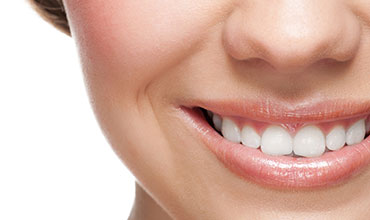
Surgical instructions after tooth extraction
Immediately following surgery
When you get home, fold and place a gauze pad directly over the extraction site and bite firmly for 30 minutes. If excessive bleeding continues, apply another fresh gauze pad for an additional 30 minutes. Excessive bleeding is defined as pooling or dripping blood out of the extraction sites within 15-20 seconds of removing the gauze. Don't use the amount of blood on the gauze as a guide, because minimal bleeding may persist for up to 24 hours. It is not unusual for saliva to be slightly blood-tinged for several days following surgery. Please call our office if you feel bleeding is excessive.
You may receive a prescription for an antibiotic and/or a pain reliever. You may fill these prescriptions at the pharmacy of your choice. Take all medications as instructed by your doctor.
Some amount of discomfort is to be expected following any surgery. If your surgeon feels you will benefit from a prescription pain medicine, you will receive a prescription following your surgery. Please follow the instructions carefully. Ibuprofen (such as Advil, Nuprin, Motrin) works very well for many patients following oral surgery and can reduce the amount of narcotic pain medicine needed significantly. You may find taking 400-600mg every six hours on a regular schedule for the first 2-3 days is all the pain medicine you need. You may alternate your prescription pain medicine with ibuprofen for maximum pain relief. Those who are allergic to aspirin or other NSAIDs cannot follow this regimen.
If possible chew on the opposite side of your extraction site. For multiple extractions, you should have soft foods on the day of surgery and the day following surgery. Soft foods include ice cream, pudding, jello, yogurt, soup (lukewarm), pancakes, mashed potatoes, scrambled eggs, pasta, etc. Avoid hard, crunchy foods such as chips or nuts that may disturb the extraction site for at least one week. After the third day, you may eat anything you wish, unless given other specific instructions by the doctor. No alcoholic beverages should be consumed for at least twenty-four hours following general anesthesia or as long as you are taking pain medications.
Do not smoke for at least 3 days following surgery. The longer you avoid smoking, the better your healing will progress.
Avoid all brushing, rinsing or spitting the day of the surgery. The day after your surgery, you may brush your teeth, but avoid brushing near the surgical site(s) for 3 days. Rinse with ½ cup warm water and a pinch of salt beginning 3 days after surgery.
Do not use a straw for 3 days following surgery.
Your sutures dissolve on their own and may come out any time after surgery. You may notice that they are loose after the swelling of your gum tissue decreases. This is completely normal.
If you have been provided with an irrigator (small plastic syringe), you should begin using it on the third day after surgery on the lower extraction sites after each meal and at bedtime. Fill the irrigator with lukewarm water. You may add a small amount of salt. Make sure to get the tip of the irrigator into the extraction site and flush out the extraction site completely. This may be uncomfortable at first, but keeping the site clean reduces the chance of infection or improper healing.
Do not drive or engage in strenuous activities for at least 24 hours. You may return to work or school when you feel you are recovered. We can supply a doctor's note if necessary. If you have undergone general anesthesia, you should go home immediately and rest for the remainder of the day.
After tooth extraction, it's important for a blood clot to form to stop the bleeding and begin the healing process. A dry socket occurs when the blood clot is dislodged from the surgery site exposing the bone and fine nerve endings. This condition is more common in back teeth, particularly wisdom teeth, although it can occur in any extraction site. Dry socket occurs two or more days after an extraction and can last 5-6 days.
You may be asked to return to our office for a post-operative follow-up visit 10 to 14 days following surgery. Please make every effort to return to have your surgical sites examined for proper healing.
If any unusual symptoms should occur, you may reach one of our doctors 24 hours a day at (410) 676-5252.